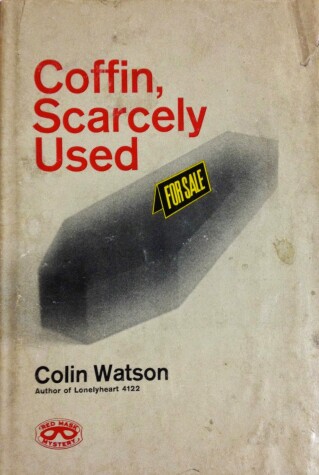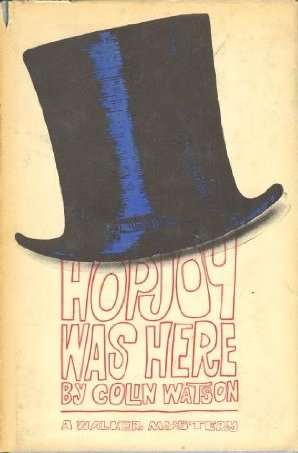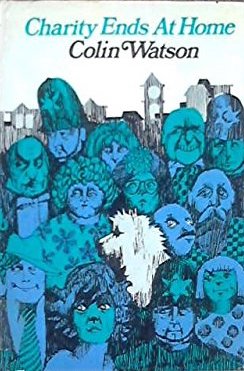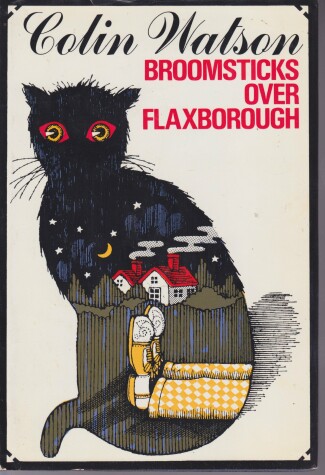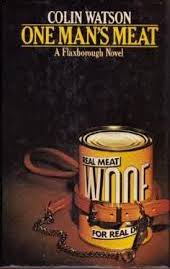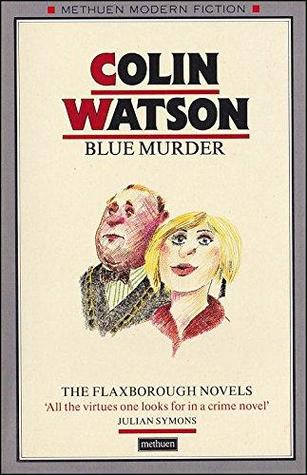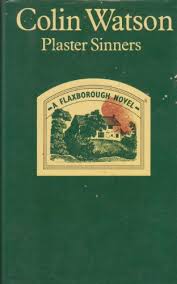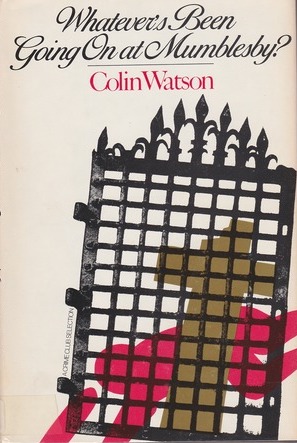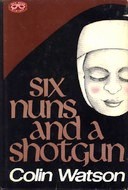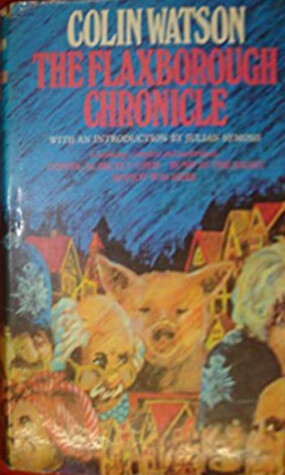Flaxborough Chronicles
11 primary works • 13 total works
Book 1
The small town of Flaxborough is taken aback when one of the mourners at Councillor Carobelat's funeral dies just six months later. Not only was he Councillor Carobelat's neighbour but the circumstances of his death are rather unusual, even for Flaxborough standards. Marcus Gwill, proprietor of the Flaxborough Citizen has been found electrocuted at the foot of an electricity pylon with a mouth full of marshmallows. Local gossip rules it as either an accident or a suicide but Inspector Purbright remains unconvinced. After all, he's never encountered a suicide who has been in the mood for confectionery at the last moment...
Book 2
Chalmsbury, a neighbouring town to Flaxborough, has been experiencing a series of explosions that have destroyed many of the town's monuments. Explosives have even gone missing from the Flaxborough civil defence centre and Purbright is seconded to the baffled Chalmsbury police force to help them discover the culprit.
When one of the locals is killed Purbright is forced to delve into the community of eccentric residents in a desperate hunt for the killer and finds that, like Flaxborough, Chalmsbury is every bit as rich in genteel assassination.
First published in 1960 Bump in the Night is Colin Watson's second book in the Flaxborough series.
'He has all the virtues one looks for in a crime novel: a gift for writing dialogue, a sense of character, a style which moves from easy flippancy to positive grace.' Julian Symons
Book 3
'[A] macabre and jolly English tale.' New Yorker
'Mr Watson has an unforgivably sharp eye for the ridiculous.' Anthony Boucher, New York Times
Faber Finds will be reissuing all the Flaxborough novels in sequence.
Book 4
Something for which she had not dared to hope. Not in remote, prosperous, hard-headed Flaxborough.
A matrimonial bureau.
Two women have disappeared in the small market town of Flaxborough. They are about the same age, both quite shy and both unmarried. As Inspector Purbright discovers the only connection between them appears to be the Handclasp House Marriage Bureau, but what begins as a seemingly straightforward missing persons case soon spirals out of control as Purbright encounters deceit, blackmail and murder.
Lonelyheart 4122 is the fourth in Colin Watson's Flaxborough series and was first published in 1967.
'Flaxborough, that olde-worlde town with Dada trimmings.' Sunday Times
'Watson's Flaxborough begins to take on the solidity of Bennett's Five Towns, with murder, murky past and much acidic comment added.' H. R. F. Keating
Book 5
My Dear Friend . . . I am in great danger. The person whose loyal and faithful companion I have been . . . intends to have me done away with . . .
When this unsigned letter is sent to three people in town none of them take it seriously. However, as with most events Inspector Purbright and the residents of Flaxborough realise that hindsight is a wonderful thing, especially when a woman is found dead in suspicious circumstances.
Charity Ends at Home is the fifth novel in the Flaxborough series and was first published in 1968. Faber Finds will be reissuing all the Flaxborough novels in sequence.
'Arguably the best of comic crime writers.' Time Out
Book 6
. . . Raising another flower - a lank, brownish-yellow affair - Miss Pollock deliberately avoided the leading contestant's eye and looked appealingly to the further part of her audience.
'Now, what about some of you other ladies? Wouldn't you like to have a try?'
'Old Man's Vomit,' snapped the omniscient Mrs. Crunkinghorn. 'You don't want to hold that too near your dress, me dear.'
Book 7
It is the eve of Saint Walpurga and the respectable housewives of Flaxborough are dancing naked around fires. It is also brought to Inspector Purbright's attention that there are darker forces at work. This includes reports of Satanism, cult sacrifice and black magic, as well as the vicious ritual killing that shocks the town. Is there a practitioner of the dark arts in Flaxborough or is that just a smokescreen for a mere murder?
Broomsticks over Flaxborough is the seventh in Colin Watson's 'Flaxborough chronicles'. First published in 1972 it was described by Julian Symons as having 'all the virtues one looks for in a crime novel.'
Book 9
Book 10
First published in 1979, Blue Murder is the tenth novel in the Flaxborough series and displays Watson's characteristic dry wit and striking observation.
'Flaxborough is Colin Watson's quiet English town whose outward respectability masks a seething pottage of greed, crime and vice...Mr Watson wields a delightfully witty pen dripped in acid.' Daily Telegraph
'Arguably the best, and certainly the most consistent of comic crime writers, delicately treading the line between wit and farce...Funny, stylish and good mysteries to boot.' TIME OUT
Book 11
First published in 1980, Plaster Sinners is the eleventh novel in the Flaxborough series and displays Watson's characteristic dry wit and striking observation.
'Flaxborough is Colin Watson's quiet English town whose outward respectability masks a seething pottage of greed, crime and vice...Mr Watson wields a delightfully witty pen dripped in acid.' Daily Telegraph
'Arguably the best, and certainly the most consistent of comic crime writers, delicately treading the line between wit and farce...Funny, stylish and good mysteries to boot.' TIME OUT
'One of the best. As always with Watson, the writing is sharp and stylish and wickedly funny!' Literary Review
Book 12
'Whatever's Been Going on at Mumblesby?' is an entertaining and witty excursion into rural deviance and the foibles of Flaxborough and its environs.
Flaxborough is a quiet market town in the east of England, discreetly prosperous, respectable and brimming with provincial virtues. However, beneath the bland surface, strange passions seethe. The little foibles of its citizens afford more than ample scope to the wisdom and pertinacity of Inspector Purbright.
First published in 1975, The Naked Nuns is the eighth novel in the Flaxborough series and displays Watson's characteristic dry wit and striking observation.
'Flaxborough, that olde-worlde town with Dada trimmings.' Sunday Times
